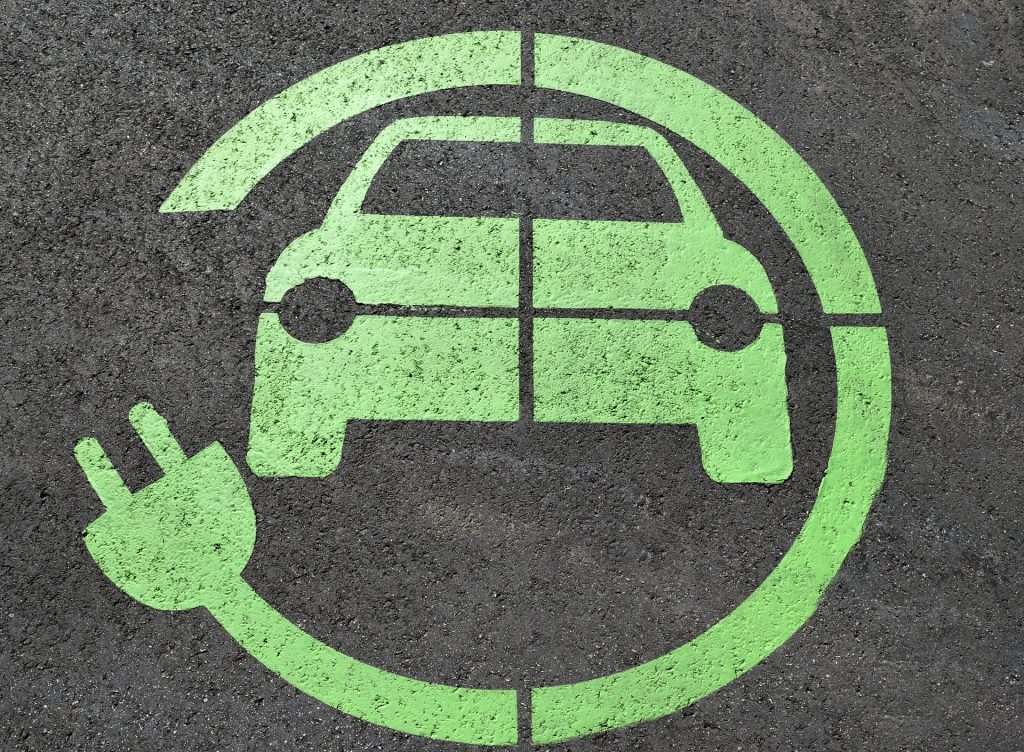Preparing now for the future of widespread electric vehicle adoption
- By: Katharyn Peterman

The state of Colorado rolled out a greenhouse gas pollution reduction plan in 2021 with a goal of cutting greenhouse gas emissions by at least 90% by 2050.
As part of the plan, Colorado is encouraging the adoption of electric vehicles to help reduce the state’s greenhouse gas emissions, since transportation is the largest source of greenhouse gas emissions in the state.
The widespread adoption of electric vehicles presents unique systems-related questions about the entire lifecycle of an electric vehicle.
Tom Bradley, department head and Woodward professor in the systems engineering department, and Tim Coburn, professor in systems engineering, hope that their recent research focus on the lifecycle of electric vehicles, and specifically lithium-ion batteries, can help to develop a path for a sustainable future for EVs in Colorado.
“There’s a real need for research to inform EV policy-making right now,” Bradley said. “We really need to get the results from academic research beyond the university, because a lot of policy is being made that is going to affect how EV adoption rolls out.”
Lithium-ion batteries provide innovation & funding opportunities
Recently, Bradley and Coburn’s research has been focused on the lifecycle of lithium-ion batteries, which power newer electric vehicles. They published a report for the Colorado Pollution Prevention Advisory Board last year about the current state of lithium-ion battery recycling and re-use.
Their report found that most cars with lithium-ion batteries are still under warranty, meaning there is not currently a supply of lithium-ion batteries for recycling purposes. The limited number of lithium-ion batteries that are being recycled from Colorado are being sent outside the State to be processed.
“Because most EVs are still under warranty, we still have time to figure out a recycling or reuse system that works,” Coburn said. “There is a lot of opportunity for entrepreneurship and new innovation in this space.”
This contrasts with the robust recycling system that exists for lead acid batteries, the type of battery typically used in internal combustion engine cars. Since lead acid batteries have been around longer, there has been more time for mature recycling programs to develop.
“When your car battery dies, you take it to the dealer, Walmart or AAA and essentially exchange it for a new one for a set fee which is the cost of the new battery minus some retained value,” Coburn said. “Retailers collect these batteries and send them to recyclers who separate/capture the lead, acid, chemicals, plastics, etc. that can be used to produce new batteries. There are strict guidelines that govern the recycling process and there are equally strict guidelines about disposal in landfills.”
The U.S. Department of Energy recently released a notice of intent to provide $2.91 billion to boost production of advanced batteries needed for electric vehicles and energy storage, underscoring the nationwide interest in developing programs and systems for sustainably recycling and reusing lithium-ion batteries before the need arises.
“Despite much of the recent hype, Colorado is not yet a major player in the EV space. If the State’s plans and strategies truly materialize, then this will change,” Coburn said. “But for now, there does not appear to be a lithium-ion battery ‘problem’ in Colorado, and there really isn’t any lithium-ion battery recycling industry yet in the state to talk about.”
EVs present a larger paradigm shift
EVs will require not only developing a lithium-ion battery recycling system, but also will lead to changes in the way people think about transportation.
One example is the different maintenance needs required for an electric vehicle. Combustion engine cars have many moving parts that may need replacement throughout the car’s life. There are also routine maintenance needs, like oil changes and filter replacements, and less frequent component replacements like the water pump or the alternator.
With EVs, the motor is the only moving part, meaning no routine oil changes are needed and there are fewer lifetime component replacement as well.
Day-to-day use and “refueling” will also look different with electric vehicles.
“If you’re going to own an EV, you simply have to think differently, and plan differently, to accommodate the idea of ‘refueling’ because there isn’t a charging station on every corner like there are gas stations, and charging takes longer, at least currently, than filling up a gasoline tank,” Coburn said.
Both Coburn and Bradley assert that these changes will take time to get used to, but once incorporated into people’s schedules, will feel less burdensome.
“There are certainly inconveniences that go along with EVs, but there are many conveniences that we don’t consider right now because EVs aren’t part of our normal day yet and aren’t our default expectation of what a ‘vehicle’ is,” Bradley said.
Relevant Course Highlight:
In Fall 2022, Coburn will be introducing a new course, Transitions in Energy Systems (SYSE 581A2), which will provide a systems-level overview of the future energy landscape. There will be several sections focused on the impacts of electrifying personal vehicles and other forms of transportation.




